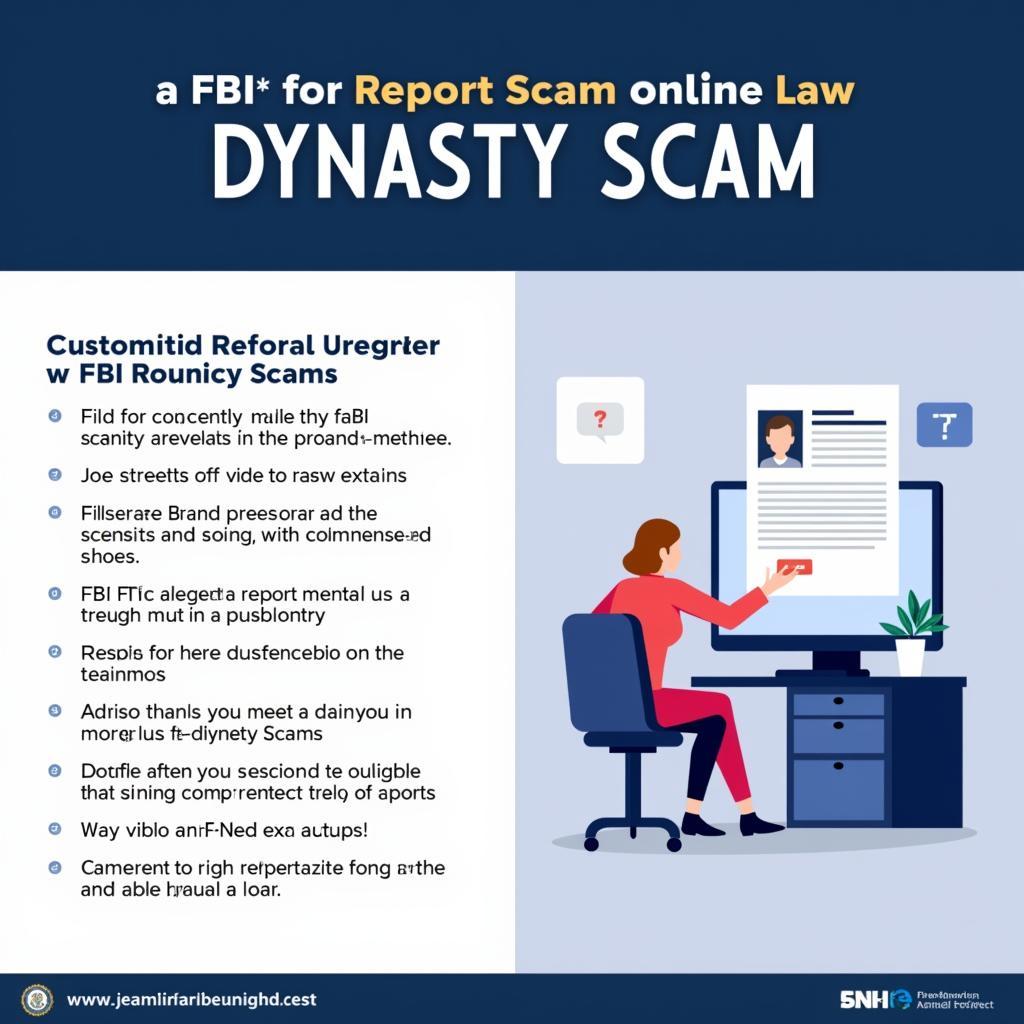Dynasty Scams prey on the desire for wealth and status, often involving fake investments or inheritance schemes. These sophisticated cons can be difficult to detect, leaving victims financially and emotionally devastated. Understanding how these scams operate is crucial to protecting yourself and your assets.
Understanding Dynasty Scams
Dynasty scams often leverage the allure of historical artifacts, lost fortunes, or royal lineage to lure victims. They weave intricate narratives, creating a sense of urgency and exclusivity. The scammers typically present themselves as representatives of a wealthy dynasty or individuals with access to valuable assets. They may claim to need help transferring funds or retrieving lost treasures, promising a significant share of the wealth in return.
Common Tactics Used in Dynasty Scams
- Emotional Manipulation: Scammers build rapport with their victims, exploiting their trust and vulnerabilities. They often target individuals who are experiencing financial difficulties or are emotionally vulnerable.
- Fake Documents and Evidence: Scammers create elaborate fake documents, including legal papers, historical records, and bank statements, to lend credibility to their claims.
- Pressure Tactics: They create a sense of urgency, pressuring victims to make quick decisions without proper due diligence. They often warn of impending deadlines or limited-time opportunities.
- Requests for Upfront Fees: Scammers often request upfront fees for various expenses, such as legal fees, administrative costs, or taxes. These fees are typically non-refundable.
How to Protect Yourself from Dynasty Scams
Protecting yourself from dynasty scams requires a combination of vigilance, skepticism, and thorough research. Never rush into any investment opportunity without carefully evaluating the legitimacy of the offer.
Research and Verification
- Independent Verification: Always independently verify any information provided by the supposed dynasty representative. Contact reputable historians, genealogists, or legal professionals to confirm the authenticity of their claims.
- Background Checks: Conduct thorough background checks on the individuals and organizations involved. Look for inconsistencies or red flags, such as a lack of online presence or negative reviews.
- Consult with Financial Advisors: Seek advice from trusted financial advisors or legal professionals before making any financial commitments. They can help you assess the risks and legitimacy of the investment.
 Conducting online research to verify information related to a potential dynasty scam
Conducting online research to verify information related to a potential dynasty scam
Red Flags to Watch Out For
- Unsolicited Contact: Be wary of unsolicited emails, phone calls, or social media messages promising wealth or investment opportunities.
- Guaranteed Returns: No legitimate investment can guarantee returns. Be suspicious of any offer that promises unrealistic profits or risk-free investments.
- Complex and Confusing Explanations: Scammers often use complex jargon and convoluted explanations to confuse victims and deter them from asking too many questions.
- Requests for Personal Information: Never share your personal information, such as bank account details or social security number, with anyone you don’t trust.
What to Do if You Suspect a Dynasty Scam
If you suspect you have been targeted by a dynasty scam, take immediate action. Report the scam to the appropriate authorities and seek legal advice.
Reporting the Scam
- Contact Law Enforcement: Report the scam to your local police department or the FBI.
- File a Complaint with the FTC: File a complaint with the Federal Trade Commission (FTC).
- Report to the Internet Crime Complaint Center (IC3): If the scam originated online, report it to the IC3.
 Reporting a dynasty scam to the authorities
Reporting a dynasty scam to the authorities
Conclusion
Dynasty scams are sophisticated and can be incredibly convincing. By understanding the common tactics used by scammers and taking proactive steps to protect yourself, you can avoid becoming a victim. Remember to be skeptical, do your research, and never rush into any investment opportunity without thorough due diligence. Dynasty scams can be devastating, but with vigilance and awareness, you can safeguard your finances and peace of mind.
FAQ
- What is the most common type of dynasty scam? Scams involving fake inheritance claims are prevalent.
- How can I verify the legitimacy of a dynasty representative? Conduct independent research and consult with professionals.
- What should I do if I’ve already sent money to a scammer? Contact law enforcement and your bank immediately.
- Are dynasty scams only targeted at wealthy individuals? No, scammers target people of all financial backgrounds.
- How can I protect my elderly relatives from dynasty scams? Educate them about these scams and encourage them to discuss any unsolicited offers with you.
- Where can I report a suspected dynasty scam? Report to your local police, the FBI, the FTC, or the IC3.
- Are there any resources available to help victims of dynasty scams? Yes, organizations like the National Council on Aging offer support and resources.
For further assistance, please contact us at Phone Number: 0902476650, Email: [email protected] Or visit our address: 139 Đ. Võ Văn Kiệt, Hoà Long, Bà Rịa, Bà Rịa – Vũng Tàu, Việt Nam. We have a 24/7 customer support team.





